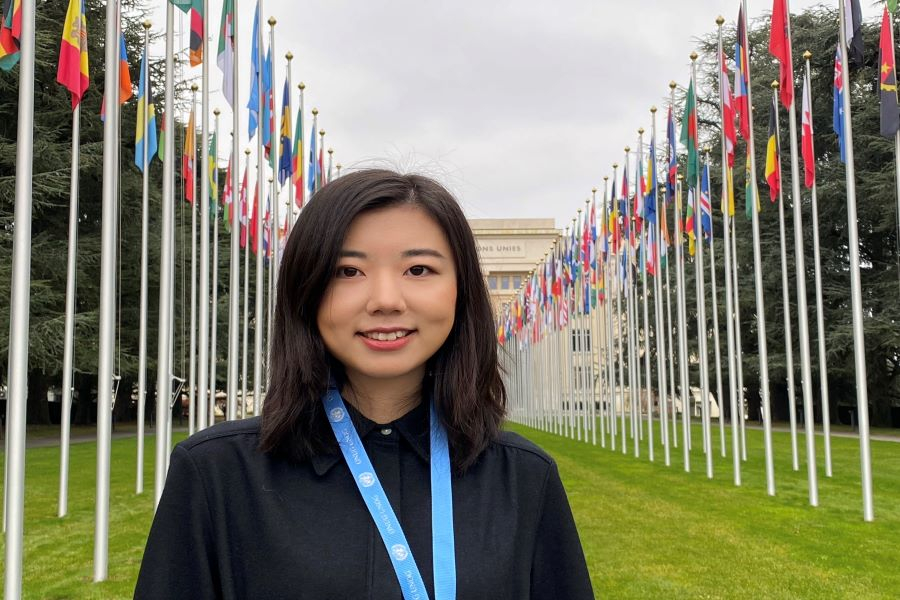Journey Toward Contributing to the Sustainable Development of Human Society

Yufang Chen
MAIR '22
1. What encouraged you to apply to Johns Hopkins SAIS?
While researching for graduate programs, the curriculum of SAIS caught my attention. The combination of international economics courses and a flexible concentration can cultivate students’ quantitative and qualitative analytical skills and provide them broad exposure to the most significant and urgent developmental issues in their respective fields.
I’m looking forward to having as many diverse cultural experiences as possible. Therefore, spending two years on two different continents sounded really attractive to me! In the first half of 2020, I lived in Paris for a few months, and I also traveled to the Netherlands, Switzerland, Greece, and some other European countries. These experiences made me want to establish a deeper connection with Europe. Besides, during the COVID-19 pandemic, SAIS’ Bologna campus provided me with the possibility of on-campus study. Such mobility became the reason I chose SAIS in the end.
2. What program are you in and what do you hope to gain from it?
I’m an MA student concentrating in Energy, Resources and Environment. From my perspective, these are the major issues humanity faces in the coming decades. Also, public policies have to play a major role in solving these problems due to the externalities of infrastructure construction and environmental protection. I hope to develop my own knowledge systems out of these topics through course learning and then apply it in real-life practices to promote the realization of sustainable development goals.
3. What were you doing before attending the school?
After obtaining a bachelor’s degree in economics in China, I took a gap year and reflected on my past studies and future professional goals. I spent several months interning at the Boston Consulting Group and Harvard Business School. My job included designing transformation and development strategies for private companies and studying the business model of the most representative Chinese companies. The cases I worked on made me fully aware of the influence and complexity of public policies and strengthened my determination to work in the public affairs field.
4. What has been one of your favorite experiences or classes at the school so far?
One of my favorite classes was Senior Adjunct Professor of International Economics Michael Klein’s Organization and Regulation of Infrastructure course. I think the course was a perfect combination of theory and practice. The professor used a variety of microeconomics and financial theories to help us understand the operating mechanisms of different infrastructure markets. He also taught us how to apply these theories to real-life problems. For example, one highlight from the course was a debate about the cause of electrical disconnection in Texas last winter. Moreover, this course really provided a comprehensive treatment of policy issues arising in the infrastructure sector, which also taught me great practical values.
5. As a second year, what are some things you are looking forward to in your final semester?
In my final semester, I hope to take full advantage of the resources provided by SAIS and complete a smooth transition from being a graduate student to becoming a young professional. Last June, I was honored to earn an internship opportunity from the UN Environment Programme in Geneva. During the internship, I assisted with the communication and publication works in a department focusing on reducing chemical wastes. Not only did this position improve my working competence, but it also expanded my understanding of international organizations and public affairs. During my stay in Geneva, thanks to the robust network of JHU’s Handshake platform and the Geneva Career Trek, I met a few SAIS alumni working there. They shared their work experiences with me and gave me many useful tips for building my own competitiveness, which really inspired me. I look forward to connecting more with SAIS alumni working in the public sector in Washington, DC, and listening to their advice on career development.
6. What do you hope to do with your degree after you graduate?
After graduation, I’m looking forward to working in the public sector, and in particular, hope to concentrate on energy and environmental issues and formulate policies in a global context. I hope to contribute my own part to the sustainable development of human society.
Back to Student Stories